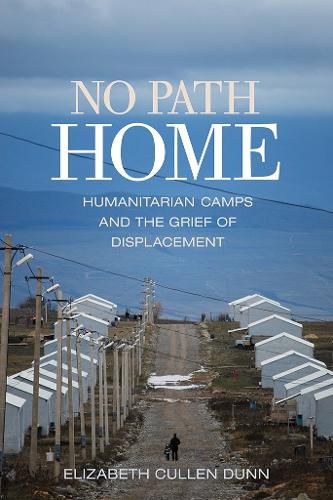Readings Newsletter
Become a Readings Member to make your shopping experience even easier.
Sign in or sign up for free!
You’re not far away from qualifying for FREE standard shipping within Australia
You’ve qualified for FREE standard shipping within Australia
The cart is loading…






For more than 60 million displaced people around the world, humanitarian aid has become a chronic condition. No Path Home describes its symptoms in detail. Elizabeth Cullen Dunn shows how war creates a deeply damaged world in which the structures that allow people to occupy social roles, constitute economic value, preserve bodily integrity, and engage in meaningful daily practice have been blown apart. After the Georgian war with Russia in 2008, Dunn spent sixteen months immersed in the everyday lives of the 28,000 people placed in thirty-six resettlement camps by official and nongovernmental organizations acting in concert with the Georgian government. She reached the conclusion that the humanitarian condition poses a survival problem that is not only biological but also existential. In No Path Home, she paints a moving picture of the ways in which humanitarianism leaves displaced people in limbo, neither in a state of emergency nor able to act as normal citizens in the country where they reside.
$9.00 standard shipping within Australia
FREE standard shipping within Australia for orders over $100.00
Express & International shipping calculated at checkout
For more than 60 million displaced people around the world, humanitarian aid has become a chronic condition. No Path Home describes its symptoms in detail. Elizabeth Cullen Dunn shows how war creates a deeply damaged world in which the structures that allow people to occupy social roles, constitute economic value, preserve bodily integrity, and engage in meaningful daily practice have been blown apart. After the Georgian war with Russia in 2008, Dunn spent sixteen months immersed in the everyday lives of the 28,000 people placed in thirty-six resettlement camps by official and nongovernmental organizations acting in concert with the Georgian government. She reached the conclusion that the humanitarian condition poses a survival problem that is not only biological but also existential. In No Path Home, she paints a moving picture of the ways in which humanitarianism leaves displaced people in limbo, neither in a state of emergency nor able to act as normal citizens in the country where they reside.